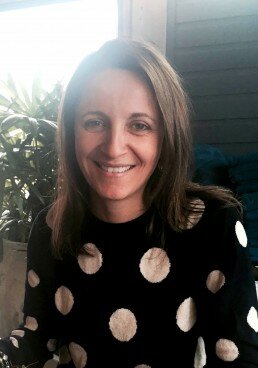INVITED PRE-CONGRESS FULL DAY WORKSHOPS
Eighteen Full Day Workshops will take place from 09.00 – 17.00 on Wednesday 17th July 2019.
Refreshments mid-morning and afternoon, and a light lunch, are included in the cost of the workshop.
Delegates will receive the materials for their workshop on arrival at the workshop room or will have been sent them in advance.
Delegates can only attend the workshop that they have pre-registered for and cannot change workshops since many are already full.
Certificates of attendance for the individual workshops will be sent by email to delegates at the end of the workshop.
Adult Anxiety

Cognitive Therapy for Social Anxiety Disorder in Adults and Adolescents
David Clark, The University of Oxford, UK
Cognitive Therapy for Social Anxiety Disorder in Adults and Adolescents
David M Clark, University of Oxford, UK]
Social anxiety disorder is common and remarkably persistent in the absence of treatment. It frequently leads to occupational and educational underachievement. Interpersonal relationships are impaired. Dissatisfaction with the way that life is progressing often triggers depressive episodes.
Clark and Wells (1995) proposed a cognitive model that aims to explain why social anxiety disorder is so persistent. A distinctive form of cognitive therapy that targets the maintenance processes classified in the model was developed. Randomised controlled trials in the UK, Germany and Sweden have demonstrated that the new treatment is highly effective. Comparisons with other active treatments have established that cognitive therapy is superior to: two forms of group CBT, exposure therapy, interpersonal psychotherapy, psychodynamic psychotherapy, SSRIs, medication-focussed treatment as usual, and placebo medication. Such a comprehensive demonstration of differential effectiveness is extremely rare in psychotherapy.
This workshop presents the Clark & Wells model and illustrates the key treatment procedures that have been developed from the model. These include: the self-focused attention and safety behaviours experiential exercise, video-feedback, externally-focused attention training, behavioural experiments, and procedures (discrimination training and memory re-scripting) for addressing early experiences that influence patients’ current behaviour in social situations. The treatment procedures are illustrated with case material and videos clips from therapy sessions. Guidance on the use of the most appropriate measures for identifying therapy targets and monitoring progress is also provided. Finally, the workshop explains why some procedures that are common in other CBT programs (e.g. thought-records, positive self-talk in a phobic situation, exposure hierarchies) are NOT used in Clark & Wells’ cognitive therapy program. As social anxiety disorder usually starts in adolescence, the workshop covers how to use the treatment in adolescents as well as adults.
Key learning objectives:
- To identifying key processes in maintaining social anxiety disorder
- The main procedures in cognitive therapy for social anxiety disorder
- How to track change in the maintenance processes during therapy.
Implications for everyday clinical practice of CBT
Social anxiety is the most common of the anxiety disorders and is a complication in many other clinical conditions. Research suggests that optimal outcomes are achieved when standard cognitive behavioural therapy approaches are augmented with a series of specialised procedures such as video feedback, training in externally focused non-evaluative attention, and modified PTSD related interventions for socially traumatic earlier experiences. This workshop is therefore likely to be of benefit to a range of clinicians who regularly treat patients with different anxiety disorders.
Professor David M Clark is the Chair of Experimental Psychology at the University of Oxford. He is well–known for his pioneering work in combining experimental psychopathology and clinical studies to develop new and effective psychological treatments for anxiety disorders. NICE currently recommends the treatments developed by David’s group as first line interventions for panic disorder, social anxiety disorder and PTSD. Recently, he has focused on how to effectively disseminate treatments to the public and is one of the architects of the English Improving Access to Psychological Therapies (IAPT) Programme. Currently, the IAPT program treats around 600,000 people per year and reports clinical outcomes on almost everyone. David is the UK Government’s Clinical and Informatics Advisor for the program and provides advice on the dissemination of psychological treatments to commissioners in many other countries.
He is an Honorary Fellow of the BPS & BABCP and a Fellow of the British Academy and Academy of Medical Sciences, the Association for Behavioral and Cognitive Therapies, and the Association for Psychological Science (USA). He holds Lifetime Achievement/Distinguished Scientist Awards from BPS, American Psychological Association, American Association for Behavioural and Cognitive Therapies and the Society for Science in Clinical Psychology.
References
Clark, D.M. (2005). A cognitive perspective on social phobia. In R.Crozier and L.Alden (Eds).The Essential Handbook of Social Anxiety for Clinicians. Wiley; Chichester.
Clark, D.M., Ehlers, A., Hackmann, A., McManus, F., Fennell, M.J.V., Waddington, L. , Grey, N, and Wild, J. (2006). Cognitive therapy and exposure plus applied relaxation in social phobia: A randomized controlled trial. Journal of Consulting and Clinical Psychology, 74, 568-578.
Mayo-Wilson, E., Dias, S., Mavranezouli, I., Kew, K., Clark, D.M., Ades, A., and Pilling S. (2014). Psychological and pharmacological interventions for social anxiety disorder in adults: A systematic review and network meta-analysis. Lancet Psychiatry, 1: 368-376.

Cognitive Behaviour Therapy for Health Anxiety and Beyond
Paul Salkovskis, University of Oxford, UK
Worried Sick? Extending the application of the CBT from health anxiety to Medically Unexplained Symptoms and Long Term Medical Conditions.
Paul Salkovskis, University of Oxford, UK
Cognitive behavioural approaches to health anxiety have been shown to be effective in RCTs in people where the main presenting problem is anxiety focussed on health, and in those seeking medical help in hospital found to have high levels of health anxiety. There are also indications that CBT could be effective in Medically Unexplained Symptoms (MUS) and in Long Term Physical Health problems (LTC) associated with relatively severe psychological distress.
In this workshop, Paul will describe the cognitive behavioural theory of health anxiety and how that has been applied to the development and validation of a treatment which evidence suggests is both effective and cost effective, and which can be relatively easily learned by health professionals. The main components of this treatment will be described and illustrated, with the emphasis on the clinical “how to”.
The complex link between health anxiety and problems in general medical settings (both primary and secondary care) will be discussed, and evidence for generalisation to both MUS and LTC evaluated. The adaptations required for the application of the health anxiety treatment in this context will then be outlined, particularly focusing on the fact that anxiety and perception of threat alone will not always account for the maintenance of psychological distress in such problems. A trans-diagnostic model will be detailed which allows the application of a transdiagnostic CBT approach to therapy. However, it is emphasized that attention to specific issues is also required, so the treatment is in fact a hybrid of transdiagnostic and specific elements. The way such treatment should be conducted, from screening, assessment and formulation and engagement through to more active treatment, behavioural experiments and generalization strategies will be outlined in the context of MUS such as IBS, chronic pain, CFS and so on.
The importance of using an empirically and theoretically grounded transdiagnostic approach as a way of ensuring high quality therapy is thus considered in the context of the need to address the specific issues in symptomatically diverse problems such as chronic pain, Irritable bowel, chronic fatigue and so on. Core elements of treatment include engagement and developing a shared understanding supplemented by “modules” addressing specific aspects of MUS in the later stages of treatment, with behavioural experiments cutting across both aspects of the treatment. Treatment fundamentals and details will be discussed and, where possible, demonstrated.
This workshop provides the foundation for CBT for health anxiety and its application to a range of presentations including MUS and LTC in addition to where health anxiety is the primary problem.
Key learning objectives:
- To understand better the interplay between health concerns and physical symptoms with and without medical explanations
- To develop engagement skills with patients where physical health issues are prominent
- To develop skills in assessment as the foundation for formulation and shared understanding
- To apply formulation based CBT to such cases
References
Salkovskis, P. M., Warwick, H., & Deale, A. C. (2003). Cognitive-behavioral treatment for severe and persistent health anxiety (hypochondriasis). Brief Treatment and Crisis Intervention, 3(3), 353.`
Salkovskis, P. M., Gregory, J. D., Sedgwick-Taylor, A., White, J., Opher, S., & Ólafsdóttir, S. (2016). Extending Cognitive-Behavioural Theory and Therapy to Medically Unexplained Symptoms and Long-Term Physical Conditions: A Hybrid Transdiagnostic/Problem Specific Approach. Behaviour Change, 1-21.
Wattar, U., Sorensen, P., Buemann, I., Birket-Smith, M., Salkovskis, P. M., Albertsen, M., & Strange, S. (2005). Outcome of cognitive-behavioural treatment for health anxiety (hypochondriasis) in a routine clinical setting. Behavioural and Cognitive Psychotherapy, 33(02), 165-175.
Sørensen, P., Birket-Smith, M., Wattar, U., Buemann, I., & Salkovskis, P. (2011). A randomized clinical trial of cognitive behavioural therapy versus short-term psychodynamic psychotherapy versus no intervention for patients with hypochondriasis. Psychological Medicine, 41(2), 431-441.
Adult Depression

Reimagining Cognitive Behavior Therapy for Major Depression
Keith Dobson, University of Calgary, USA
Reimagining Cognitive Behavioural Therapy for Major Depression: Using a Contextual Framework to Conceptualize and Treat Depression
Keith Dobson, Department of Psychology, University of Calgary, Calgary, Canada
Cognitive behavioral therapy for depression has been one of the most intensively studied forms of psychotherapy. It has ongoing evidence for its absolute efficacy, but declining evidence for its superiority over other treatment models for depression. This workshop argues that part of the need is to reimagine CBT for depression in a more holistic manner, and to use recent data on the risk and resilience factors, to build a current and contextualized framework to conceptualize and treat major depression. This workshop will provide a contemporary framework to view depression that builds on proven methods but enhances that framework and thus provides more skills for CBT therapists, more flexibility in treatment, and a significant opportunity to help more patients who struggle with the problem of clinical depression. The focus of the workshop will be on conceptualization and case planning; while major evidence-based treatment methods will be described, this will not be a major focus of the workshop
Key learning objectives:
- Understand the recent evidence on risk and resilience factors in major depression
- Develop an enhanced and contextualized framework to conceptualize depression
- Develop a model to match treatment methods to the newly presented framework
Implications for everyday clinical practice of CBT
This workshop will help clinicians to hone their case conceptualization skills, to develop a more comprehensive and contemporary model of major depression and select methods that are likely to be successful when working with depressed clients. From a practical perspective, this approach should yield higher success rates and fewer relapses, more satisfaction among patients, enhanced competence among therapists, shorter wait lists and enhanced patient care.
Keith Dobson, Ph.D. is a Professor of Clinical Psychology at the University of Calgary. His research has focused on both cognitive models and mechanisms in depression, and CBT for depression. Dr Dobson’s research has resulted in over 250 published articles and 80 chapters, 15 books, and conference and workshop presentations in many countries. Dr Dobson has been actively involved in organized psychology in Canada, including a term as President of the Canadian Psychological Association. He is a former President of both the Academy of Cognitive Therapy and the International Association for Cognitive Psychotherapy and is the President of the Canadian Association for Cognitive and Behavioural Therapies. His awards include the Canadian Psychological Association’s Award for Distinguished Contributions to the Profession of Psychology, the Donald O. Hebb Award for Distinguished Contributions to the Science of Psychology, the CPA Award for Distinguished Contributions to the International Advancement of Psychology, and the Aaron T. Beck Award from the Academy of Cognitive Therapy.
References
Dobson, D. J. G., & Dobson, K. S. (2017). Evidence-based Practice of cognitive behavior therapy, 2nd edition. NY, NY: Guilford Press.
Dobson, K. S. & Dozois, D. J. A. (Eds.). (2008). Risk factors in depression. San Diego, CA: Elsevier Academic Press.
Johnsen, T. J., & Friborg, O. (2015). The effects of cognitive behavioral therapy as an anti-depressive treatment is falling: A Meta-analysis. Psychological Bulletin,141 (4), 747–768.
Adult Trauma

Variable Length Cognitive Processing Therapy for Post Traumatic Stress Disorder
Patricia A Resick, Duke University Medical Center, USA
Variable Length Cognitive Processing Therapy for Post Traumatic Stress Disorder
Patricia A Resick, Duke University Medical Center, USA
Cognitive Processing Therapist (CPT) has been listed as a first rank therapy for PTSD in numerous treatment guidelines and there have been more than two dozen well-controlled randomized controlled trials as well as a number of effectiveness community and veteran studies demonstrating the efficacy and effectiveness of CPT. Although there have been only a few studies thus far examining variable length CPT, it appears to increase the outcomes because of the individualized nature of the protocol. This workshop will give an overview of the usual 12-session protocol and will then present the evidence supporting variable length CPT. The workshop leader will demonstrate how to introduce the concept of variable length treatment and will then show how to determine whether someone is ready to stop early or needs to continue on with more sessions. Demonstrations with recorded examples will be shown.
Key learning objectives:
- Participants will learn key components of cognitive processing therapy.
- Participants will be able to describe the literature supporing the use of variable length CPT
Participants will be able to discussing and stop therapy early or carry the protocol longer until the patients achieve good end state on their PTSD.
Implications for everyday clinical practice of CBT
In everyday practice settings a set-length therapy protocol may not be feasible, needed or may not be sufficient. Being comfortable with discussing how long to treat patients and when to stop is in keeping with usual practice standards and may improve outcomes and reduce drop-out. Keeping fidelity to the CPT protocol but abbreviating or elongating it is a skill that may increase usage of an evidence-based treatment such as CPT.
Patricia A. Resick, Ph.D., ABPP is a Professor in the Department of Psychiatry and Behavioral Sciences, Duke University Medical Center. She has been continuously funded for her research for 40 years and has published over 300 articles, chapters, and books. She is best known for the development, testing, refinement, and dissemination of cognitive processing therapy for PTSD. Dr. Resick has served as president of both the International Society of Traumatic Stress Studies and the Association for Behavioral and Cognitive Therapies. She has received numerous awards including Outstanding Contributions by an Individual for Educational/Training Activities Presented by the Association for Behavioral and Cognitive Therapies and Distinguished Lifetime Achievement Award from Division 56, Trauma Psychology, of the American Psychological Association
References
Galovski, T.E., Blain, L.M., Mott, J.M., Elwood, L., Houle, T. (2012). Manualized therapy for PTSD: Flexing the structure of cognitive processing therapy. Journal of Consulting and Clinical Psychology, 80(6), 968-981.
Szafranski, D. D., Smith, B. N., Gros, D. F., & Resick, P. A. (2017). High Rates of PTSD Treatment Dropout: A Possible Red Herring? Journal of Anxiety Disorders, 47, 91-98 http://dx.doi.org/10.1016/j.janxdis.2017.01.002
LoSavio, S. T., Dillon, K. H., Murphy, R. A., Goetz, K., Houston, F., & Resick, P.A. (in press). Using a Learning Collaborative model to disseminate cognitive processing therapy to community-based agencies. Behavior Therapy.
Adult Obsessive States

Treating Mental Contamination in Obsessive Compulsive Disorders
Adam Radomsky, Concordia University, Canada
Treating Mental Contamination in Obsessive Compulsive Disorder:
A Contemporary Cognitive Approach
Adam S. Radomsky, Concordia University, Canada
Obsessive-compulsive disorder (OCD) is a heterogeneous disorder; common symptoms include washing and checking behaviour, as well as primary obsessions (i.e. repugnant, unwanted, intrusive thoughts, images and impulses). There has been a surge in recent research on each of these forms of OCD, with publications often solidly grounded in a variety of cognitively-based models. Although these models differ to some extent in their explanation of obsessional and compulsive phenomena, they share a number of important features that are consistent with broad cognitive principles. These have enabled a new, primarily cognitive conceptualization of contamination-based OCD, the assessment and treatment of which will be the main focus of this workshop. We will begin with a review of the theoretical and empirical work conducted on the psychopathology and treatment of contamination-related manifestations of OCD. The workshop will continue with practical instruction on the cognitive-behavioural assessment and treatment of contamination-related OCD, with emphasis on strategies and interventions for mental contamination (contamination-based symptoms that occur in the absence of direct contact with a physical contaminant). Attendees will learn about cognitive case formulation, the importance of ongoing assessment, and specific therapeutic interventions, all following from cognitive-behavioural models of OCD. Although OCD remains a serious and often debilitating disorder, our ability to substantially improve the lives of those suffering from the problem has dramatically increased in recent years. This workshop will capitalize on these recent improvements through the emphasis of new cognitive and behavioural treatment strategies for this challenging disorder.
Key learning objectives:
- Learn about the phenomenology and theory of mental contamination.
- Learn about assessment and case formulation of mental contamination-related OCD.
- Learn treatment strategies to employ to reduce mental contamination.
Implications for everyday clinical practice of CBT
Traditional CBT approaches to treating OCD rely heavily on exposure and response prevention. These are based in the notion that contamination arises as a result of direct contact with a contaminant
. However, mental contamination, where contamination symptoms arise in the absence of direct contact with a physical contaminant may be under-served by this approach
. Advances in our understanding of mental contamination suggest that cognitively-based approaches may be particularly helpful
. This workshop will provide an overview of theory, research, assessment, case formulation, and treatment strategies for use with clients who present with mental contamination symptomatology.
Dr Radomsky holds the Concordia University Research Chair in Anxiety and Related Disorders and is Professor of Psychology at Concordia University. He is the Editor-In-Chief of the Journal of Behaviour Therapy and Experimental Psychiatry, the Director of the Anxiety and Obsessive-Compulsive Disorders Laboratory, and a Core Member of the Centre for Clinical Research in Health. His research investigates cognitive, behavioural and emotional aspects of OCD and a number of other anxiety disorders, as well as ways to enhance the effectiveness and acceptability of cognitive-behaviour therapy for anxiety disorders and related problems. He is a Fellow of the Canadian Psychological Association, was the Founding President of the Canadian Association for Cognitive and Behavioural Therapies, and has received several institutional, national and international awards for his work. Rd. Radomski has published a number of peer-reviewed articles, a co-authored book and numerous book chapters related to his work on cognition, behaviour and the anxiety disorders and is a frequent invited speaker at national and international conferences. His research is funded by the Canadian Institutes of Health Research and by the Social Sciences and Humanities Research Council of Canada. Rd. Radomski is also a member of L’Ordre des Psychologues du Quebec and is CACBT-ACTCC Certified in Cognitive-Behaviour Therapy. In his clinical practice he specializes in Cognitive Behaviour Therapy (CBT) for adult OCD and other anxiety disorders.
References
Rachman, S., Shafran, R., Coughtrey, A.E., & Radomsky, A.S. (2015). Oxford guide to the treatment of mental contamination. Oxford: Oxford University Press.
Radomsky, A.S., Rachman, S., Shafran, R., Coughtrey, A.E., & *Barber, K.C. (2014). The nature and assessment of mental contamination: A psychometric analysis. Journal of Obsessive Compulsive and Related Disorders, 3(2), 181-187. doi:10.1016/j.jocrd.2013.08.003
Radomsky, A.S., Coughtrey, A., Shafran, R., & Rachman, S. (in press). Abnormal and normal mental contamination. Journal of Obsessive-Compulsive and Related Disorders
Child and Adolescent Mental Health

Cognitive Behavior Therapy for Children and Adolescents with Anxiety Disorders
Jennie Hudson, Macquarie University, Australia
Cognitive Behavior Therapy for Children and Adolescents with Anxiety Disorders
Jennie Hudson, Centre for Emotional Health, Macquarie University, Australia
Anxiety disorders are the most common mental disorder in children and young people, yet they often go unrecognised and untreated. Children with anxiety disorders are also at risk of developing other mental disorders such as depression, substance abuse as well as continued anxiety across the lifespan. Effective treatment of anxiety disorders in childhood can prevent the development of other mental health issues later in life.
Cognitive behavioural therapy (CBT) for children with anxiety disorders is efficacious in reducing the presence of anxiety disorders and symptoms. Results from systematic reviews demonstrate recovery rates of approximately 60% (Cartwright-Hatton, Roberts, Chitsabesan, Fothergill, & Harrington, 2004; James, Soler, & Weatherall, 2005). Typically, manual based CBT, such as the Cool Kids program (developed in Australia) includes unified protocol that targets a range of anxiety disorders in children including, Generalised Anxiety Disorder, Separation Anxiety Disorder, Social Anxiety Disorder, Specific Phobia, Panic Disorder, Agoraphobia, Selective mutism, Post-Traumatic Stress Disorder, Obsessive Compulsive Disorder. This is largely due to the high rates of comorbidity between anxiety disorders in childhood. Although separate anxiety disorders can be differentiated in childhood, it is generally agreed that there is an underlying construct of anxiety that can be treated within a broad-based protocol such as the Cool Kids program.
This workshop covers general information on anxiety disorders including diagnostic criteria, assessment techniques and current research findings on factors that maintain anxiety and how this links with treatment approaches. It also provides specific training on how to run the Cool Kids™ anxiety program.
Key learning objectives:
At the conclusion of the course, participants should be able to:
- Select appropriate assessment techniques to assess for anxiety.
- Understand the cognitive behavioural model of anxiety in children and adolescents.
- Understand the core components of treatment for anxiety in this population and how each link to the factors that maintain anxiety disorders.
- Implement the Cool Kids program with children, adolescents and their families within the school environment or community setting.
Implications for everyday clinical practice of CBT
The Cool Kids program is designed to train children, adolescents and their families in anxiety management skills and can be used in clinical, community and school settings. The workshop will teach participants to implement the program within a range of settings.
Professor Jennie Hudson is the Director of the Centre for Emotional Health, Department of Psychology, Macquarie University. Jennie’s research focuses on understanding the factors that contribute to children’s emotional health and improving the services available to children and young people experiencing anxiety and other emotional disorders. Jennie is a co-author of one of the most widely used treatment programs for child and adolescent anxiety – Cool Kids. She has co-authored the book “Treating anxious children: An evidence-based approach” (2000) and edited “Psychopathology and the Family” (2006). She has also authored over 130 peer reviewed research publications and serves on the editorial board for a number of international journals such as Journal of Abnormal Child Psychology, Clinical Child and Family Psychology Review, Journal of Clinical Child and Adolescent Psychology and Behaviour Research and Therapy.
References
Hudson, J. L., Rapee, R. M., Lyneham, H. J., McLellan, L. F., Wuthrich, V. M., & Schniering, C. A. (2015). Comparing outcomes for children with different anxiety disorders following cognitive behavioural therapy. Behaviour research and therapy, 72, 30-37.
Rapee, R. M., Wignall, A., Hudson, J. L., & Schniering, C. A. (2000). Treating anxiety in children: An evidence-based approach. Oakland, CA: New Harbinger Publications.
Warwick, H., Reardon, T., Cooper, P., Murayama, K., Reynolds, S., Wilson, C., & Creswell, C. (2017). Complete recovery from anxiety disorders following Cognitive Behavior Therapy in children and adolescents: A meta-analysis. Clinical psychology review, 52, 77-91.

Transforming the Lives of Children, Parents, and Communities Through Evidence-based Parenting Support
Matthew Sanders, The University of Queensland, Brisbane, Australia
Transforming the Lives of Children, Parents, and Communities Through Evidence-based Parenting Support
Matthew Sanders, The University of Queensland, Brisbane, Australia
This workshop provides an overview of the Triple P multilevel system of parenting interventions and their application to a broad range of child social and emotional problems. A self-regulation framework in actively teaching parenting skills is discussed and demonstrated. A population based model of evidence base parenting support is described with specific case exemplars to highlight how parenting interventions can achieve population level change, benefiting children, parents and communities. Strategies for dealing with vulnerable and high risk parents are discussed including parents with mental health problems, relationship problems, and parents affected by substance abuse. Procedures for promoting fidelity of intervention are discussed. A series of case scenarios are used to develop participant clinical problem solving and formulation skills. The workshop will cover the full spectrum of evidence based interventions from media and communication strategies, seminars, discussion groups, intensive group and online programs and enhanced individual programs for complex cases. Organisational and implementation factors related to sustainability and fidelity will be discussed.
Key learning objectives:
- Participants will become familiar with the theoretical and empirical basis Triple P multiple level system of intervention as an intervention to reduce child maltreatment and social and emotional problems in children.
- Participants will be familiar with procedures to enhance parental self-regulation
- Participant will be familiar with procedures to improve engagement and treatment outcomes with vulnerable and disadvantaged families.
- Participants will be familiar with the application of resistance management strategies within consultation sessions
Implications for everyday clinical practice of CBT
This workshop will introduce participants to Triple P as an effective, multi-level system of parenting intervention that includes variants for both prevention and treatment of child and adolescent social, emotional and behavioural problems
Dr Matthew Sanders is a Professor of Clinical Psychology and Director of the Parenting and Family Support Centre at The University of Queensland. He is the founder of the internationally recognized Triple P-Positive Parenting Program, which is now run in 28 countries around the world in 22 languages. 76,000+ practitioners have been trained to deliver Triple P. He has published extensively in the area of parenting, family psychology and the prevention of behavioural and emotional problems in children. He is a fellow of the Academy of Social Sciences in Australia, Australian Psychological Society, New Zealand Psychological Society, Australian Association of Cognitive Behaviour Therapy and the Academy of Experimental Criminology. He has been a consultant to the Council of Europe on Positive Parenting and is a former Queenslander of the Year.
References
Sanders, M. R., & Mazzucchelli, T. G. (Eds.). (2017). The Power of Positive Parenting: Transforming the Lives of Children, Parents, and Communities Using the Triple P System. Oxford University Press.
Sanders, M. R., Burke, K., Prinz, R. J., & Morawska, A. (2017). Achieving population-level change through a system-contextual approach to supporting competent parenting. Clinical Child and Family Psychology review, 20(1), 36-44.
Eating Disorders

Adapting Cognitive Behavior Therapy to the Distinctive Features of Eating Disorders
Kelly Bemis Vitousek, Hawaii University, USA
Adapting Cognitive Behavior Therapy to the Distinctive Features of Eating Disorders
Kelly Bemis Vitousek, Hawaii University, USA
In the nearly four decades since cognitive behavior therapy (CBT) was proposed for the treatment of bulimia nervosa (BN) and anorexia nervosa (AN) (Fairburn, 1981; Garner & Bemis, 1982), a strong evidence base has accumulated to support its effectiveness for BN and binge-eating disorder, with more tempered positive results for AN. Numerous modifications to the initial protocols have been suggested, including elements targeting body dissatisfaction, mood intolerance, interpersonal difficulties, perfectionism, and cognitive inflexibility. Some of these were incorporated into Fairburn’s (2008) enhanced transdiagnostic formulation (CBT-E), which has become the dominant approach for adults with eating disorders (EDs). Nonetheless, there is consensus that improved interventions are needed, particularly for individuals with AN. Before concluding that CBT has reached its ceiling of effectiveness for EDs, two directions of inquiry are recommended.
First, despite its transdiagnostic emphasis, the approach has yet to take full advantage of developments in CBT for other disorders. For example, therapist-assisted exposure has clear potential relevance for addressing fear and avoidance in the context of EDs. With focal exceptions, however, exposure techniques have been both underused and attenuated in this area, lagging far behind advances in the anxiety disorder field. Recent proposals to make more systematic, intensive use of exposure in treating EDs are consonant with the existing CBT model – and long overdue.
Second, even as we profit from treatment advances that target common processes across diagnostic groups, we should redouble our efforts to understand and address features that distinguish the EDs from other forms of psychopathology. These include the phenomenology of semi-starvation, the positive valuation of symptoms, and the hard work required to sustain extreme dietary restriction. Although these elements are highlighted in conceptual CBT models of AN, they have received surprisingly little research and clinical attention.
This workshop will highlight several key themes that should inform the design and delivery of modified treatment approaches. Specific recommendations for adapting CBT to the distinctive features of EDs will be outlined and illustrated with numerous clinical examples. Guidelines for incorporating in vivo and imaginal exposure will be reviewed in detail, with role-play practice of sample scenarios.
Key learning objectives:
At the end of this session, participants will be able to:
- Recognize several distinctive phenomena that complicate the treatment of EDs
- Identify how the style, focus, and techniques of CBT can be adapted to better fit these features
- Discuss the use of values-related themes in CBT for EDs
- Describe targets and techniques for in vivo and imaginal exposure
Identify patient and therapist safety behaviors that can interfere with the effective implementation of exposure
Implications for everyday clinical practice of CBT
Although the EDs share features with many psychiatric disorders, some of their most distinctive characteristics make a disproportionate contribution to the challenges we face in treatment. This workshop will concentrate on specific clinical strategies for overcoming obstacles to the use of CBT with ED patients, including the effects of semi-starvation, ambivalence about full symptomatic recovery, reluctance to experiment with new behaviors, and the persistence of food-related anxiety and body dissatisfaction despite extended exposure. The session will be geared toward clinicians with a strong general background in CBT and/or familiarity with dominant CBT approaches for EDs.
Kelly Bemis Vitousek is an Associate Professor of Psychology at the University of Hawai‘i, where she also serves as Co-Director of the Center for Cognitive Behavior Therapy and Director of the Eating Disorder Program. Her interests include motivational issues in the treatment of eating disorders, CBT for anorexia nervosa, and patterns of valued, effortful behavior in non-clinical populations, including high-altitude mountain climbers, competitive birders, and practitioners of calorie restriction for longevity. She has served on the editorial boards of seven journals, and received awards from national and international organizations for clinical and training contributions.
References
Fairburn, C. G. (2008). Cognitive behavior therapy and eating disorders. NY: Guilford.
Murray, S. B., Treanor, M., Liao, B., Loeb, K. L., Griffiths, S., & Le Grange, D. (2016). Extinction theory and anorexia nervosa: Deepening therapeutic mechanisms. Behaviour Research and Therapy, 87, 1-10.
Vitousek, K., Watson, S., & Wilson, G. T. (1998). Enhancing motivation for change in treatment-resistant eating disorders. Clinical Psychology Review, 18, 391-420.
Personality Disorder

Cognitive Behavior Therapy for Personality Disorder
Judith Beck, Beck Institute for Cognitive Behavioural Therapy, USA
Cognitive Behavior Therapy for Personality Disorders
Judith S. Beck, Beck Institute for Cognitive Behavior Therapy, University of Pennsylvania, USA
Cognitive Behavior Therapy (CBT) for clients with personality disorders is based on the original cognitive model described by Aaron Beck, M.D. (Beck, 1963; 1964). This model was greatly elaborated upon in “Cognitive Therapy for Personality Disorders” by Beck et al, 1990, which was revised in 2015, and in “Cognitive Therapy for Challenging Problems” (J. Beck, 2007).
This workshop deals with the challenges of treating clients with personality disorders, clients who, for example, fail to engage in treatment, miss sessions, feel hopeless and stuck, become angry in session, engage in self-harm, use substances, blame others, avoid homework, experience continual crises, and so on. Special attention will be paid to the therapeutic alliance: how to engage clients, how to prevent therapeutic ruptures, and how to use therapeutic ruptures to strengthen the relationship and help clients learn how to view other people more realistically, solve interpersonal problems, decrease their use of unhelpful interpersonal coping behaviors, and improve relationships outside of treatment.
Another difficulty which will be addressed in this workshop is helping clients evaluate and modify their extremely longstanding, negative, dysfunctional, rigid, overgeneralized core beliefs. Finally, we’ll address the use of experiential strategies, including changing the meaning of traumatic childhood experiences, to change clients’ beliefs at both the intellectual and emotional level of processing.
Key learning objectives:
- Learn how to use a cognitive conceptualization to guide treatment for personality disorder patients.
- Learn how to conceptualize therapeutic relationship problems.
- Learn how to use specialized strategies to overcome challenges in treatment.
Implications for everyday clinical practice of CBT
A national epidemiologic survey has estimated that approximately 15% of adults in the US have at least one personality disorder. A much higher percentage of adults have personality pathology that interferes with treatment. While many therapists are familiar with, and practice, standard CBT (for example, as is used in straight-forward cases of depression), they are often unaware of how to conceptualize and effectively treat clients whose acute disorders are complicated by a personality disorder.
Judith S. Beck, Ph.D., is President of the Beck Institute for Cognitive Behavior Therapy in Philadelphia, a non-profit organization that provides a variety of training programs to health and mental health professionals worldwide, and a Clinical Professor at the University of Pennsylvania. She has authored over 100 chapters and articles and several books, including Cognitive Behavior Therapy: Basics and Beyond, which has been translated into over 20 languages, Cognitive Therapy for Challenging Problems, and books for consumers on a CBT approach to weight loss and maintenance. She divides her time among teaching, clinical work, supervision, administration, program development and consultation, and writing.
References
Beck, J. S., Broder, F., & Hindman, R. (2016). Frontiers in Cognitive Behaviour Therapy for Personality Disorders. Behaviour Change, 33(2), 80-93.
Beck, A.T., Davis, D.D., & Freeman, A. (Eds.) (2015). Cognitive therapy of personality disorders (3rd ed.). New York: Guilford Press.
Matusiewicz, A.K., Hopwood, C.J., Banducci, A.N., & Lejuez, C.W. (2010). The effectiveness of cognitive behavioral therapy for personality disorders. Psychiatric Clinics of North America, 33,657–285.

Schema Therapy for Personality Disorders
Eva Fassbinder, University of Lübeck, Germany
Schema Therapy for Personality Disorders
Eva Fassbinder, University of Lübeck, Department of Psychiatry and Psychotherapy
Schema therapy (ST) with the schema mode approach is currently one of the major developments in the treatment of personality disorders (PD). ST is a transdiagnostic approach, but also provides disorder-specific models for most PDs. A number of studies demonstrate effectiveness for treatment based on these models, especially for Borderline Personality Disorder (BPD) and Cluster-C-PDs (avoidant, dependent and obsessive-compulsive PD). The mode model gives a clear structure for the development of an individual case concept, in which all current symptoms and interpersonal problems of the patient and the connection with their biographical context can be accommodated. The therapeutic interventions are adapted to the present mode in the specific situation. ST uses cognitive and behavioral techniques and there is a special focus on experiential techniques (especially chair dialogues and imagery rescripting) and on specific features of the therapeutic relationship (‘limited reparenting’). This workshop gives an overview of the theoretical backgrounds and practical application of the schema mode model. Case conceptualization and major ST techniques are illustrated with case examples and participants will train these techniques by means of roleplay.
Key learning objectives:
- Learn about the theoretical background and practical application of ST
- Be able to develop an individual case formulation for a patient with PD
- Understand the goals of ST with respect to the mode model
- Train experiential techniques and learn about ‘limited reparenting’
Implications for everyday clinical practice of CBT
The mode model provides a clear structure to understand the origins and persistence of PD patients’ problems. All occurring problems and interpersonal disturbances are explained and worked with in an individual mode model. With the mode model in mind in everyday practice even severe interpersonal problems, which often also affect the therapeutic relationship and cause distress on both sides, are seen as ‘survival strategies’ to protect the vulnerable part of the patient and can be directly addressed. This and the central attitude of limited reparenting leads to high acceptance of ST in both therapists and patients and low drop-out rates.
Eva Fassbinder works as assistant medical director at the Department of Psychiatry and Psychotherapy, Lübeck University. She is co-leader of the outpatient clinic at Lübeck University and her main efforts lie in the implementation and dissemination of outpatient psychotherapy programs. Main research interests: schema therapy and other third wave psychotherapies, group psychotherapy, personality disorders, posttraumatic stress disorders, depression, emotion regulation and online psychotherapy.
References
Arntz, A. & van Genderen, H. (2009). Schema Therapy for Borderline Personality Disorder. Wiley.
Arntz, A. & Jacob, G. (2012). Schema Therapy in Practice. Wiley.
Young, J.E., Klosko, J.S. & Weishaar, J.S. (2003). Schema Therapy, a Practioner’s Guide. Guilford.
Psychosis and Bipolar Disorder

Working with Complexity in Psychosis
Sandra Bucci, The University of Manchester, UK
Working with Complexity in Psychosis
Sandra Bucci, University of Manchester, UK
Vulnerability to experiencing psychosis has been linked to a range of adverse psychological, social and environmental circumstances, including attachment and relational difficulties, dissociative processes, poverty, social deprivation, urbanisation, and victimisation, to name a few (Read et al., 2008; van Os et al., 2010). Voice-hearing can be a particularly distressing experience for people with psychosis, and acting on auditory hallucinations remains one of the most distressing and high risk symptoms of psychosis. Command hallucinations are often the most distressing voice-hearing experience for both clinicians to manage and service users to experience. Evidence suggests that cognitive appraisals, the relationship a voice-hearer has with a voice, and the nature of a voice hearer’s broader social relationships predicts harm to self and others (Birchwood et al., 2018). A cognitive therapy approach that considers processes in addition to biased appraisals might therefore represent a fruitful therapy option for people with distressing psychotic experiences.
The cognitive model of voices suggests that it is not only the level of voice activity, or the content of voices, that influences distress, but the nature of the relationship with the personified voice that affects distress and subsequent behaviour. This workshop will show how relational approaches to therapy, incorporating attachment processes, combined with traditional cognitive concepts, can be used to deliver therapy for complex voice-hearing experiences. The cognitive framework that will be used in the workshop is called cognitive therapy for command hallucinations (CTCH; Byrne et al, 2006; Meaden et al., 2013). CTCH is designed to weaken and challenge voice-hearers’ beliefs about voice power. CTCH was tested in a large multi-site trial with reductions in the power of the voice and reduced levels of compliance with voice commands (Birchwood et al., 2014).
This workshop is for clinicians who have some experience working with clients who experience psychosis but who are looking to develop their skills in working with clients who present with more complex voice-hearing experiences. The workshop will build on existing cognitive models of voice-hearing and highlight specific factors that clinicians might wish to consider when working with this client group.
Key learning objectives:
- Develop understanding of the cognitive model of voice-hearing and how the model fits with relational ways of thinking
- Understand how attachment and dissociative processes fit in the context of voice-hearing
- Practice formulating distressing voice-hearing using the cognitive therapy for command hallucinations model
- Practice key behaviour change techniques to reduce the perceived power of voices
Implications for everyday clinical practice of CBT
Clinicians will practice formulating distressing voice-hearing drawing on attachment and other relational concepts and how these can be integrated into evidence-based cognitive models of voice-hearing.
Clinicians will practice behaviour change strategies that they can use in everyday practice to help reduce the perceived power voice-hearers experience in relation to voices in order to help clients manage distressing voices..
Dr Bucci is a Senior Lecturer in Clinical Psychology at the University of Manchester, UK, and an Honorary Consultant Clinical Psychologist at Greater Manchester Mental Health NHS Foundation Trust specialising in psychosis. Dr Bucci has nearly 20 years experience in clinical research investigating the psychological processes involved in the development of psychosis and in the delivery and evaluation of complex psychological interventions to improve outcomes for people with severe mental health problems. The focus of Dr Bucci’s academic activity is focused on two main themes: i) innovations in healthcare delivery for severe mental health problems, with a focus on developing digital health interventions and examining their interface with clinician-delivered care; and ii) understanding the putative psychological mechanisms involved in the development and maintenance of psychotic experiences. Dr Bucci is Editor-in-Chief of the British Psychological Society journal Psychology and Psychotherapy, Theory, Research and Practice and co-Director of the Complex Trauma and Resilience Unit (C-TRU), a clinical research unit hosted by Greater Manchester Mental Health NHS Foundation Trust.
References
Meaden, A., Keen, N., Aston, R., Barton, K. & Bucci, S. (2013). Cognitive therapy for command hallucinations: An advanced practical companion. Hove: Routledge.
Birchwood, M., Michail, M., Meaden, A., Tarrier, N., Lewis, S., Wykes, T. et al. (2014). Cognitive behaviour therapy to prevent harmful compliance with command hallucinations (COMMAND): a randomised controlled trial. Lancet Psychiatry, 1, 23-33.
Berry, K., Varese, F. and Bucci, S., 2017. Cognitive attachment Model of Voices: evidence base and future implications. Frontiers in Psychiatry, 8, p.111.

Psychological Therapy for Bipolar Disorder – Why? What? How?
Fiona Lobban and Steve Jones, Lancaster University, UK


Psychological Therapy for Bipolar Disorder – Why? What? How?
Fiona Lobban and Steve Jones, Spectrum Centre for Mental Health Research, Lancaster University, UK
Bipolar Disorder affects approximately 1 – 1.5% of adults and is the third most common mental health cause of disability globally. The impact on quality of life can be devastating and rates of suicide are high. However, variation in outcomes between and within individuals, and the value placed on positive aspects of bipolar experiences, highlights important opportunities for psychological therapy.
The pros and cons of diagnosis, ambivalence about taking medication, the desire to experience hypomanic highs coupled with fear of depressive lows, and finding ways to achieve personally valued goals whilst managing the more destructive aspects of mood swings are just some of the range of challenges people are likely to bring to psychological therapy.
In this workshop we will explore the lived experiences of bipolar disorder, identifying the key issues that lead people to seek therapy. We will review psychological models of the cognitive and behavioural processes underlying these experiences, and explore how these can be modified to empower people to achieve their valued goals.
In addition to individual face-to-face therapy, we aim to inspire participants to broaden their range of skills by exploring new ways of implementing CBT including how to: involve a relative / friend in the therapeutic process where appropriate; offer group interventions to harness the power of peer support; incorporate the growing range of digital tools being developed for bipolar disorder into their practice.
Key learning objectives:
- Understanding of key issues that arise in therapy with people with bipolar disorder diagnosis, and how to identify individual recovery goals
- Experiment with clinical strategies that can be used to address these, and review evidence for their effectiveness
- Increase awareness and confidence to explore novel modes of therapy delivery to choice and improve access – including individual face to face, working with relatives / friends, peer group interventions, and online digital approaches
Implications for everyday clinical practice of CBT
We are delighted to welcome you to our workshop. Our aim is that you will be intellectually stimulated, actively involved, and have a fun day (we learn better when it’s fun). By the end, you will have an in-depth understanding of bipolar experiences and a practical guide to identifying recovery goals. You will have a framework of how to apply your cognitive and behavioural skills to working with this population. You will be familiar with a range of different ways in which psychological therapy can be offered to increase access and choice for the people you work with, and the evidence to support these.
Fiona Lobban is Professor of Clinical Psychology and Co-Director of the Spectrum Centre for Mental Health Research at Lancaster University and Honorary Consultant Clinical Psychologist with Lancashirecare NHS Trust. Her work has focused on the development, evaluation and implementation of psychosocial interventions for people with long-term mental health problems including bipolar disorder and psychosis. She has a particular interest in working with social networks including family, groups, and peer support.
Steve Jones is also Professor of Clinical Psychology and the other Co-Director of the Spectrum Centre at Lancaster. He has a life-long interest in understanding psychological processes underpinning bipolar experiences and using this to inform treatment development. He is co-author of “Cognitive therapy for bipolar disorder: A therapist’s guide to concepts, methods and practice”, and was a member of the NICE Guideline Committee for Bipolar Disorder.
References
Kendall, T., Morriss, R., Mayo-Wilson, E., & Marcus, E. (2014). Assessment and management of bipolar disorder: summary of updated NICE guidance. BMJ, 349, g5673.
Morriss, R., Lobban, F., Riste, L., Davies, L., Holland, F., Long, R., … & Jones, S. (2016). Clinical effectiveness and acceptability of structured group psychoeducation versus optimised unstructured peer support for patients with remitted bipolar disorder (PARADES): a pragmatic, multicentre, observer-blind, randomised controlled superiority trial. The Lancet Psychiatry, 3(11), 1029-1038.
Jones, S. H., Smith, G., Mulligan, L. D., Lobban, F., Law, H., Dunn, G., … & Morrison, A. P. (2015). Recovery-focused cognitive–behavioural therapy for recent-onset bipolar disorder: randomised controlled pilot trial. The British Journal of Psychiatry, 206(1), 58-66.
Therapeutic and Applied Issues

How to be an Inspiring Trainer
Melanie Fennell, Universtiy of Oxford, UK
How to be an Inspiring Trainer
Melanie Fennell, Associate Trainer, Oxford Cognitive Therapy Centre & Oxford Mindfulness Centre, University of Oxford, UK
Did you recently finish your own cognitive behaviour therapy (CBT) training and discover you were immediately expected to pass on what you learned to others? Has your training role suddenly expanded, so that you have to design and deliver sessions you have never taught before? Do you only feel secure as a trainer when everyone’s attention is on your PowerPoint presentation rather than you? Are you an experienced trainer, looking for an opportunity to reflect and replenish your resources? Or do you simply want to know how to train others more effectively?
Training clinicians to deliver high quality cognitive-behavioural therapy (CBT) presents challenges, even for experienced therapists. Training competences have not yet been defined, and very few clinicians are themselves trained to train others. It is as if, once you know how to do CBT, you should also know how to train others to do it, and do so confidently and well.
This practical, highly interactive workshop offers a framework for designing training events which facilitate active participant engagement in the learning process, and thus achieve the ultimate intention of training: deep processing of material, accurate retention of what has been learned, and a lasting capacity to apply it flexibly in the real world of clinical practice.
The workshop draws on concepts and research from adult education and management development, as well as psychological principles, to show how trainers can create a respectful, collaborative, highly experiential learning culture, reminiscent of the learning culture of CBT itself. It interweaves conceptual material with opportunities for reflection and discussion, and in particular participants will be invited to put what they are learning into practice, applying new ideas to their own training projects.
Key learning objectives:
By the end of the day participants will be able to:
- Define objectives for training events
- Use a 3-D model of meetings to identify key elements of training events
- Create a participative learning culture that mirrors the style of cognitive therapy
- Structure training sessions so as to encourage active participation and experiential learning
- Design a forthcoming training session, using ideas and methods from the workshop.
Implications for everyday clinical practice of CBT
The workshop focuses on helping therapists become effective, confident – even inspirational – trainers of other clinicians, rather than on clinical practice per se. Thus its implications for the everyday clinical practice of CBT are indirect. They lie in the future capacity of participants to contribute to the continuing development of other clinicians, by providing high quality training in CBT.
Melanie Fennell is a Chartered Clinical Psychologist who has for many years specialised in CBT, in particular for anxiety, depression and low self-esteem. Her particular interest in training skills grew out the need to disseminate new evidence-based models and treatments, many developed in the Department of Psychiatry, Oxford University.. She was a founder member of the Oxford Cognitive Therapy Centre, a centre of excellence in CBT training and supervision. There she developed and directed highly successful CBT training courses at Diploma and Master’s level, validated by the University of Oxford. She has extensive experience of training CBT and Mindfulness-Based Cognitive Therapy, both in the UK and abroad. In 2002, she was voted “Most Influiential Female UK CBT Therapist” by the membership of the British Association for Behavioural and Cognitive Psychotherapies, and in 2013 was awarded an Honorary Fellowship by the organisation.
References
Fennell, Melanie (2010) Training skills. In the Oxford Guide to surviving as a CBT therapist. Oxford University Press, Oxford, UK.
Chapter 17; pp..371-405

Emotional Schema Therapy
Robert Leahy, American Institute for Cognitive Therapy, USA
Emotional Schema Therapy
Robert L. Leahy, American Institute for Cognitive Therapy
Everyone experiences unpleasant emotions, but not everyone develops GAD, PTSD, Major Depression or a psychological disorder. Emotional Schema Therapy is an integrative, social cognitive model that proposes that problems arise as a result of evaluations, interpretations, and predictions about emotional experience that result in problematic coping strategies. For example, an adaptive interpretation of sadness and anger after a breakup would include normalizing the emotion, viewing the emotion as temporary, relating the emotion to values of intimacy, and validating one’s own experience. However, our research shows that depression, anxiety, worry, rumination, avoidance, and indecisiveness are the result of viewing one’s emotions as lasting indefinitely, out of control, abnormal, shameful, incomprehensible and unacceptable. These beliefs result in unhelpful emotion regulation strategies that perpetuate the negative beliefs about one’s emotions. In this workshop we will cover the fundamental Emotional Schema Therapy Model, techniques and conceptualizations that address the major dysfunctional emotional schemas, experiential and cognitive techniques to cope with emotional experience, and methods to enhance emotional enrichment, differentiation and emotional intelligence. This will include discussion of Emotional Perfectionism, Existential Perfectionism, “Pure Mind”, Intolerance of Ambivalence, Constructive Discomfort, Successful Imperfection, and Personal Empowerment. In addition, we will discuss how an Emotional Schema conceptualization can assist in understanding how emotional socialization, current beliefs about emotion, and current unhelpful strategies often limit the individual in developing a fully enriched life.
Key learning objectives:
- Identify the client’s emotional schemas and unhelpful emotion regulation strategies.
- Develop a case conceptualization based on the Emotional Schema Model
- Learn how to utilize cognitive, behavioural, and experiential techniques to develop an enrichment and tolerance of emotional experience.
Implications for everyday clinical practice of CBT
All of the psychological disorders involve difficulties in tolerating or experiencing emotion. The Emotional Schema Model can assist CBT practitioners in assisting clients in enriching their emotional experience, learning from their emotions, relating their emotions to their values, and developing productive strategies for coping with emotions.
Robert L. Leahy (B.A., M.S., Ph.D. Yale University), has authored and edited 27 books on cognitive therapy and psychological processes and is the Past President of the Association for Behavioral and Cognitive Therapy (ABCT), Past President of the International Association for Cognitive Psychotherapy, Past President of the Academy of Cognitive Therapy and Clinical Professor of Psychology in Psychiatry at Weill Cornell Medical School. His books have been translated into 21 languages. He has been featured in print and televised media worldwide and is a frequent keynote speaker and workshop leader in conferences throughout the world. Dr. Leahy is the Honorary Lifetime President, New York City Cognitive Behavioral Therapy Association and Distinguished Founding Fellow, Diplomate, of the Academy of Cognitive Therapy. Dr. Leahy is the Associate Editor of the International Journal of Cognitive Therapy. He recently received the Aaron T. Beck Award for Outstanding Contributions in Cognitive Behavioral Therapy
References
Leahy, R.L., Tirch, D., and Napolitano, L. (2011). Emotion Regulation in Psychotherapy: A Practitioner’s Guide. New York: Guilford.
Leahy, R.L. (2015) Emotional Schema Therapy: A Practitioner’s Guide. New York: Guilford.
Leahy, R.L. (2018) Emotional Schema Therapy: Distinctive Feature. Routledge: Oxford, UK

Compassion Focused Therapy for Self-criticism
Paul Gilbert, University of Derby, UK
Compassion Focused Therapy for Self-criticism
Paul Gilbert, University of Derby, UK
This workshop is in two parts. The first part of the workshop will explore the nature of compassion and its origins in the evolution of caring behaviour. Participants will also be introduced to the three basic forms of emotion regulation linking to threat detection, reward detection, and rest and digestive function. These will be explored in regard to how they pattern the autonomic nervous system and how the parasympathetic system in particular is important for the regulation of threat. The second part of the workshop will focus on the forms and functions of self-criticism and how bringing compassion motivation and emotion to the problem of self-criticism facilitates a range of change processes.
Key learning objectives:
Participants will
- Learn about the origins of CFT and how it was developed for people with high shame and self-criticism – and the different types of shame and self-criticism.
- understand the process of compassion as flow: the compassion we feel for others; the compassion we are open to from others; and self-compassion
- recognise how different practices focus on different elements of this “flow” and be able to recognise which practices go with which focus for compassion.
- Participants will learn how to use imagery for compassion practice
Implications for everyday clinical practice of CBT
The core principle of compassion focused therapy is that various aspects of structured therapies work better when they are integrated with an understanding of how affiliative guiding physiological systems regulate threat. Hence for example cognitive reappraisal works better if individuals are guided through the process whereby they can develop breathing exercises and focus on compassion motivation and emotional tone in the reappraisal. Attempting to reappraise difficult beliefs with an emotional tone of hostility is unhelpful hence the need to target change becomes emotional texture of the alternative thoughts. Also the compassionate mind gives an orientation to reappraisal.
Paul Gilbert, FBPsS, PhD, OBE is Professor of Clinical Psychology at the University of Derby and honorary visiting Prof at the University of Queensland. Until his retirement from the NHS in 2016 he was Consultant Clinical Psychologist for over 40 years. He has researched evolutionary approaches to psychopathology with a special focus on mood, shame and self-criticism in various mental health difficulties for which Compassion Focused Therapy was developed. He was made a Fellow of the British Psychological Society in 1993, president of the BABCP 2002-2004, and was a member of the first British Governments’ NICE guidelines for depression. He has written/edited 21 books and over 250 papers and book chapters. In 2006 he established the Compassionate Mind Foundation as an international charity with the mission statement To promote wellbeing through the scientific understanding and application of compassion (www.compassionatemind.co.uk). There are now a number of sister foundations in other countries. He was awarded an OBE by the Queen in March 2011 for services to mental health. He established and is the Director of the Centre for Compassion Research and Training at Derby University UK. He has written and edited many books on compassion. His latest Book is Living Like Crazy
References
Gilbert, P. (2010). Compassion Focused Therapy: The CBT Distinctive Features Series. London: Routledge.
Gilbert, P. (2014). The origins and nature of compassion focused therapy. British Journal of Clinical Psychology, 53, 6-41. DOI:10.1111/bjc.12043
Matos, M., Duarte, C., Duarte, J., Pinto-Gouveia, J., Petrocchi, N., Basran, J., & Gilbert, P. (2017). Psychological and physiological effects of Compassionate Mind Training: A Pilot Randomised Controlled Study. Mindfulness, 8(6), 1699-1712.

Process-based Cognitive Behavior Therapy
Steve Hayes, University of Nevada, USA
Stefan Hofmann, Boston University, USA


![]() Process-based Cognitive Behavior Therapy
Process-based Cognitive Behavior Therapy
Steve Hayes, University of Nevada, USA & Stefan Hofmann, Boston University, USA
Cognitive Behavioral Therapy (CBT) has been an enormous empirical and practical success over its more than 50+ year history. The situation surrounding evidence-based care has dramatically changed, however, and it is important for CBT to change as well. For decades, evidence-based therapy has been defined in terms of scientifically validated protocols focused on syndromes. That era seems to be passing away and a new generation of evidence-based care has begun to move toward process-based CBT to target core mediators and moderators based on testable theories. This approach could have far-reaching implications for the theory and practice of psychotherapy. It might lead to a decline of named therapies defined by set technologies, a decline of broad schools, a rise of testable models, a rise of mediation and moderation studies, the emergence of new forms of diagnosis based on functional analysis, a move from nomothetic to idiographic approaches, and a move toward processes that specify modifiable elements. These changes might have the potential to integrate or bridge different treatment orientations, settings, and even cultures.
Key learning objectives:
- Gaining an up-to-date understanding of the transdiagnostic core processes;
- Using a functional diagnostic system that has treatment utility
- Establishing more progressive models and theories in clinical practice
Implications for everyday clinical practice of CBT
A process-based approach focuses on how to best target and change core biopsychosocial processes in specific situations for given goals with given clients. This is an inherently more idiographic question that has normally been at issue in evidence-based therapy. Clinicians will learn specific methods of utilizing an idiographic and process-oriented CBT approach.
Steven C. Hayes is Nevada foundation professor in the department of psychology at the University of Nevada, Reno.
An author of 44 books and over 600 scientific articles, his career has focused on an analysis of the nature of human language and cognition and the application of this to the understanding and alleviation of human suffering. He is the developer of Relational Frame Theory, an account of human higher cognition, and has guided its extension to Acceptance and Commitment Therapy (ACT), a popular evidence-based form of psychotherapy that uses mindfulness, acceptance and values-based methods. His popular book on ACT, Get Out of You Mind and Into Your Life, is recognized by the Association for Behavioral and Cognitive Therapy for its adherence to an evidence-base and has sold over 250,000 copies. In addition to his work on process-based CBT, recently he has been working to strengthen the link between behavioral science and evolution science
Hayes has been president of Division 25 of the APA, the Association for Behavioral and Cognitive Therapy and the Association for Contextual Behavioral Science (ACBS), which is an 8,000 member international society that is organized around the approaches to behavioral science he helped create. He was the first secretary-treasurer of the Association for Psychological Science, which he helped form as chair of its initial organizing committee, and has served a five-year term on the National Advisory Council for Drug Abuse in the National Institutes of Health.
In 1992, he was listed by the Institute for Scientific Information as the 30th “highest impact” psychologist in the world. His work has been recognized by several awards including the Exemplary Contributions to Basic Behavioral Research and Its Applications from Division 25 of APA, the Impact of Science on Application award from the Society for the Advancement of Behavior Analysis, and the Lifetime Achievement Award from the Association for Behavioral and Cognitive Therapy. Google Scholar data ranks him among the most cited scholars in all areas of study, living and dead (http://www.webometrics.info/en/node/58). His TEDx talks (bit.ly/StevesFirstTED and bit.ly/StevesSecondTED) have been viewed by over 360,000 people.
Stefan G. Hofmann, Ph.D. is professor of psychology at the Department of Psychological and Brain Sciences, where he directs the Psychotherapy and Emotion Research Laboratory. He has an actively funded research program studying various aspects of emotional disorders with a particular emphasis on anxiety disorders and cognitive behavioral therapy. He has won many prestigious professional awards, including the Aaron T. Beck Award for Significant and Enduring Contributions to the Field of Cognitive Therapy by the Academy of Cognitive Therapy. He is a fellow of the American Psychological Association and Association for Psychological Science and was president of various national and international professional societies, including the Association for Behavioral and Cognitive Therapies and the International Association for Cognitive Psychotherapy. He was also an advisor to the DSM-5 Development Process and a member of the DSM-5 Anxiety Disorder Sub-Work Group. Dr. Hofmann is named a Highly Cited Researcher by Thomson Reuters. He is currently editor of Cognitive Therapy and Research and has published more than 300 peer-reviewed journal articles and 15 books. For more information, visit http://www.bostonanxiety.org/
References
Hayes, S. C. & Hofmann, S. G. (2017). The third wave of CBT and the rise of process-based care. World Psychiatry, 16, 245-246. doi: 10.102/wps.20442
Hayes, S. C. & Hofmann, S. G. (Eds.) (2018). Process-based CBT: The science and core clinical competencies of cognitive behavioral therapy. Oakland, CA: New Harbinger Publications. ISBN-13: 978-1626255968.
Hofmann, S. G., & Hayes, S. C. (in press). The future of intervention science: Process-based therapy. Clinical Psychological Science.![]()

In the Face of Adversity Build Resilience with Strengths-Based CBT
Christine Padesky, Center for Cognitive Therapy, USA
Kathleen Mooney, Center for Cognitive Therapy, USA


In the Face of Adversity Build Resilience with Strengths-Based CBT
Christine A. Padesky and Kathleen A. Mooney
In the face of adversity, even the strongest among us sometimes find it hard to stay resilient. Some people have never felt resilient. In this workshop, Padesky & Mooney teach a 4-step protocol to help clients build a personal model of resilience (PMR). Their protocol and model are easily integrated with classic CBT approaches and other evidence-based therapies. Drawing on the principles of Strengths-Based CBT (Padesky & Mooney, 2012), six key methods are highlighted: (1) how to identify and integrate strengths into CBT, (2) guided discovery approaches used to elicit a personal model of resilience, (3) the timing and rationale for therapeutic smiling, (4) use of imagery and metaphor, (5) the importance of silence for fostering client creativity, and (6) debriefing behavioral experiments through a resiliency lens.
Clinical demonstrations, structured participant role plays, and question & answer segments clarify the theory, rationale, methods and application of a PMR. Common therapy pitfalls are identified along with recommended alternative approaches
Participants are strongly encouraged to download and read Padesky & Mooney’s 2012 article before attending the workshop. Greater familiarity with this material will foster increased depth of workshop learning (i.e., the more you know, the more you will learn). It can be downloaded from https://onlinelibrary.wiley.com/doi/full/10.1002/cpp.1795
Key learning objectives:
- Identify areas of client strengths that relate to resilience
- Practice guided discovery methods to elicit client-generated metaphors for resilience
- Build a personal model of resilience (PMR)
- Apply a personal model of resilience (PMR) to create win-win responses for acute and chronic life challenges
Implications for everyday clinical practice of CBT
This strengths-based approach can be integrated within all forms of evidence-based psychotherapy practice. Just a few sessions is required to boost client awareness and practice of resilience. In addition, there is evidence from pilot research (Victor, Teismann, & Willutzki, 2017) that this 4-step model to build resilience can be used as a brief (3 session) independent intervention to build resilience, self-esteem and well-being and reduce the risk of psychopathology in nonclinical populations such as university students.
Christine A. Padesky, Ph.D. is a licensed psychologist and internationally renowned CBT innovator appreciated for her ability to integrate theory, empiricism, creativity, and practical skills. She is an Honorary Fellow of the BABCP, a Distinguished Founding Fellow and recipient of the Aaron T. Beck Award from the Academy of Cognitive Therapy, and recipient of the Distinguished Contribution to Psychology Award from the California Psychological Association. In 2002, BABCP members voted her “Most Influential International CBT Therapist” and named her book, Mind Over Mood (Greenberger & Padesky), the most influential CBT book of all time. The second edition of Mind Over Mood (2016) won 2nd place in the American Journal of Nursing Book of the Year Award, consumer health category.
Kathleen A. Mooney, Ph.D. is a licensed psychologist and, with Dr. Padesky, co-founded the Center for Cognitive Therapy in Huntington Beach, California (USA) and co-developed all of Dr. Padesky’s workshops over the past 35 years. She has taught CBT workshops in nine countries on topics as diverse as anxiety, personality disorders, therapist beliefs, creativity, and resilience. She co-produces audio and video CBT training materials for mental health professionals and designs and manages three web sites, two exclusively for mental health professionals (www.Padesky.com, Store.Padesky.com) and one for the general public (www.MindOverMood.com). She is a Diplomate and Founding Fellow of the Academy of Cognitive Therapy.
Together, Drs. Mooney and Padesky co-developed Strengths-based CBT (CBT-SB) Their creative partnership is at the core of all their individual, joint and collaborative work projects since 1981.
References
Mooney, K.A. & Padesky, C.A. (2000). Applying client creativity to recurrent problems: Constructing possibilities and tolerating doubt. Journal of Cognitive Psychotherapy: An International Quarterly, 14 (2), 149-161. [available from http://padesky.com/clinical-corner/publications]
Padesky, C. A. & Mooney, K.A. (2012). Strengths-based Cognitive-Behavioural Therapy: A four-step model to build resilience. Clinical Psychology & Psychotherapy, 19 (4), 283-90. [available from https://onlinelibrary.wiley.com/doi/full/10.1002/cpp.1795]
Victor, P.P., Teismann, T., Willutzki, U. (2017). A pilot evaluation of a strengths-based CBT intervention module with college students, Behavioural and Cognitive Psychotherapy, 45, 427-431. Doi:10.1017/S1352465816000552

Using Case Formulation and Progress Monitoring to Guide Cognitive Behavior Therapy
Jacqueline Persons, Oakland Cognitive Behavioural Therapy Centre, USA
Using Case Formulation and Progress Monitoring to Guide Cognitive Behavior Therapy
Jacqueline Persons, Oakland Cognitive Behavior Therapy Center and University of California, Berkeley
In a case formulation-driven approach to cognitive-behavior therapy, the therapist develops a hypothesis (formulation) about the factors that cause and maintain the patient’s difficulties, and uses it to guide intervention. The formulation aids in many ways, including by helping the therapist integrate interventions drawn from multiple diverse CB models, guide treatment for multiple-problem patients, and solve problems that arise in treatment. As treatment proceeds, the therapist uses the formulation and progress monitoring data to test the formulation, evaluate the effectiveness of the interventions, and solve problems. In this workshop, Dr. Persons begins with a brief description of the conceptual model underpinning this hypothesis-testing approach to CBT, and spends most of the workshop providing hands-on training in the key skills of developing a case formulation, collecting progress monitoring data, and using the formulation and the progress monitoring data to guide clinical decision-making. Teaching methods include lecture, video and audio demonstration, practice exercises, and extensive case examples. Dr. Persons provides numerous handouts, assessment scales, and forms.
Key learning objectives:
Attendees will be able to:
- Describe a conceptual model for using a case formulation and progress monitoring data to guide individualized evidence-based CBT.
- Develop an individualized case formulation for their patients.
- Collect progress monitoring data for their patients.
Implications for everyday clinical practice of CBT
Attendees will learn strategies for developing a case formulation for their patients and collecting progress monitoring data, and using the formulation and progress monitoring data to guide clinical decision-making. The presenter will provide numerous examples and forms and tools to aid the clinician.
Jacqueline B. Persons is internationally-recognized for her work on the role of the individualized case formulation in cognitive behavior therapy. Her first book, Cognitive Therapy in Practice: A Case Formulation Approach, is widely considered a classic in the field, and her most recent book, The Case Formulation Approach to Cognitive Behavior Therapy, expanded the model to add the use of progress monitoring data to guide clinical hypothesis-testing. Dr. Persons has an active clinical practice in her role as Director of the Oakland Cognitive Behavior Therapy Center in Oakland, CA. She is also Clinical Professor in the Psychology Department at University of California, Berkeley. Dr. Persons conducts research studying the psychological mechanisms underpinning symptoms of anxiety and depression, and the process and outcome of CBT. She has published more than 60 articles and chapters and three books. She has presented dozens of training workshops around the world. She is past president of the Association for Behavioral and Cognitive Therapies (ABCT) and the Society for a Science of Clinical Psychology and was named Outstanding Clinician by the ABCT in 2008. She received her Ph.D. in clinical psychology from the University of Pennsylvania in 1979.
References
Kazdin, A. E. (1993). Evaluation in clinical practice: Clinically sensitive and systematic methods of treatment delivery. Behavior Therapy, 24, 11-45.
Persons, J. B. (2008). The case formulation approach to cognitive-behavior therapy. New York: Guilford.
Persons, J. B., Beckner, V. L., & Tompkins, M. A. (2013). Testing case formulation hypotheses in psychotherapy: Two case examples. Cognitive and Behavioral Practice, 20(4), 399-409.